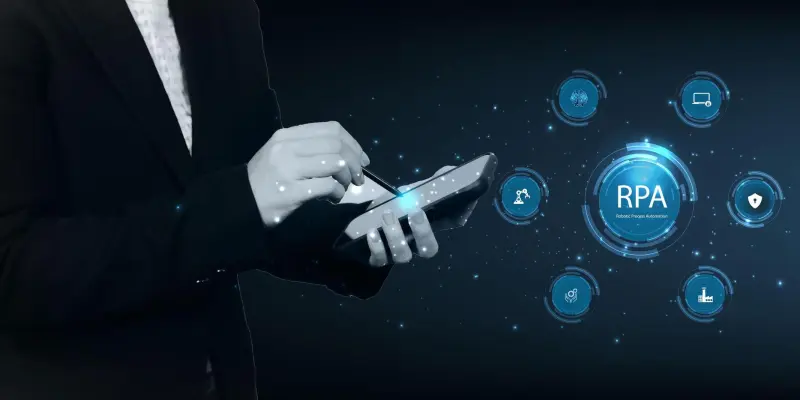The Federal Robotic Process Automation (RPA) Community of Practice (COP) is a vital initiative designed to help federal agencies in the United States tackle technical, managerial, and operational hurdles associated with RPA program development and deployment. With over 1,600 members from more than 100 departments and agencies, the COP’s mission is to convert enthusiasm for RPA into actionable projects. By guiding federal agencies to develop cost-effective, auditable, and impactful RPA programs, the COP aims to avoid common pitfalls and ensure successful implementation.
Strengthening Federal RPA Programs
Translation of Enthusiasm into Action
The primary goal of the COP is to harness the genuine interest in RPA among federal agencies and translate this enthusiasm into practical, effective programs. This transformation involves not only guiding the initial setup of RPA initiatives but also ensuring these programs can scale efficiently and sustain long-term operations. The COP’s approach focuses on creating frameworks that offer cost savings and, at the same time, comply with strict auditing requirements. Helping agencies sidestep potential issues that could undermine their efforts ensures that the programs generated can adapt and thrive in dynamic environments.
The COP facilitates this process through various key publications and resources. Notably, == the annual State of Federal RPA Report provides a comprehensive analysis of the maturity and impact of RPA initiatives across the federal government.== Emphasizing the tangible enhancements in mission delivery and citizen services achieved through automation, these reports celebrate and scrutinize each year’s progress. Another cornerstone is the Federal RPA Use Case Inventory. Released every fall, this inventory offers detailed insights into the function, software, costs, savings, and operations of various RPA use cases. The human element within this endeavor cannot be overlooked, as the COP’s extensive network offers mentorship and educational sessions to cultivate a deeper understanding and skill set among practitioners.
Knowledge Sharing and Best Practices
The COP’s concerted efforts to enable knowledge sharing and best practice dissemination are pivotal to its success. Federal employees, including those with .gov or .mil email domains, and authorized federal contract employees, are encouraged to join and participate in COP activities. Membership provides access to a wealth of resources, including publications, newsletters, and exclusive knowledge-sharing events. Members glean insights from experienced RPA practitioners, enabling them to grasp government-wide trends and apply these learnings to their respective agencies.
Events organized by the COP foster collaboration and networking. These engagements are designed to bridge the gap between various federal entities, ensuring that the successes and lessons learned by one agency can benefit many others. From webinars and workshops to interactive forums, the COP creates an environment conducive to continuous learning and improvement. Furthermore, the RPA Playbook and its Internal Controls Addendum act as invaluable guides for those embarking on or refining their RPA journey. These resources not only outline initial steps but also provide strategies to enhance program performance and drive maturity over time.
Building Effective RPA Solutions
Impactful Implementations and Study Reports
The impact of the COP’s work extends beyond theoretical applications; it manifests in real-world improvements within federal agencies. Testimonies from member agencies like the Department of the Interior and U.S. Customs and Border Protection highlight how the COP has facilitated their RPA endeavors. By leveraging the mentorship and resources provided, these agencies have successfully navigated the complexities of RPA adoption. The educational sessions and comprehensive guides, such as the RPA Playbook, have been particularly instrumental in achieving operational success. The COP’s annual publications, which include in-depth assessments of RPA program maturity and case studies of successful implementations, underscore the tangible benefits of RPA. The 2024 Federal RPA Use Case Inventory, for instance, cataloged an impressive 2,739 use cases, showcasing a wide array of applications and their outcomes. These inventories serve as a repository of knowledge, offering federal RPA program managers a detailed overview of potential use cases, their associated costs, and anticipated savings. By disseminating these findings, the COP ensures that agencies are well-equipped to make informed decisions about their RPA strategies.
Continuous Development and Learning Resources
In addition to formal reports and publications, the COP maintains an active digital presence through its blog and video content. This continuous stream of information keeps the community updated on the latest developments in RPA and related technologies. Keeping abreast of emerging trends and innovations is crucial for agencies striving to remain competitive and effective in their mission delivery. The combination of real-time updates, detailed case studies, and comprehensive guides ensures that federal agencies are not only prepared for the present but can also anticipate and adapt to future challenges.
The benefits of COP membership extend beyond access to documentation and events. The community aspect fosters a supportive network where members can share experiences, seek advice, and collaborate on common challenges. This collaborative spirit is essential for the continued growth and maturation of RPA programs. As agencies experiment with various applications and refine their processes, the collective knowledge and shared experiences within the COP become invaluable assets.
Conclusion: Driving Federal Excellence through RPA
The Federal Robotic Process Automation (RPA) Community of Practice (COP) is an essential initiative aimed at assisting federal agencies in the United States with overcoming the technical, managerial, and operational challenges linked to the development and deployment of RPA programs. The COP boasts over 1,600 members from more than 100 different departments and agencies. The primary mission of the COP is to transform the growing interest in RPA into real, actionable projects. By offering guidance, the COP helps federal agencies create cost-effective, auditable, and impactful RPA programs. This support helps ensure the avoidance of common pitfalls and the successful implementation of RPA solutions. The COP facilitates collaboration and knowledge sharing among its extensive network, further enriching the RPA endeavors of federal entities. Through workshops, best practice sharing, and direct assistance, the COP is a driving force in modernizing federal agency operations efficiently and effectively.

